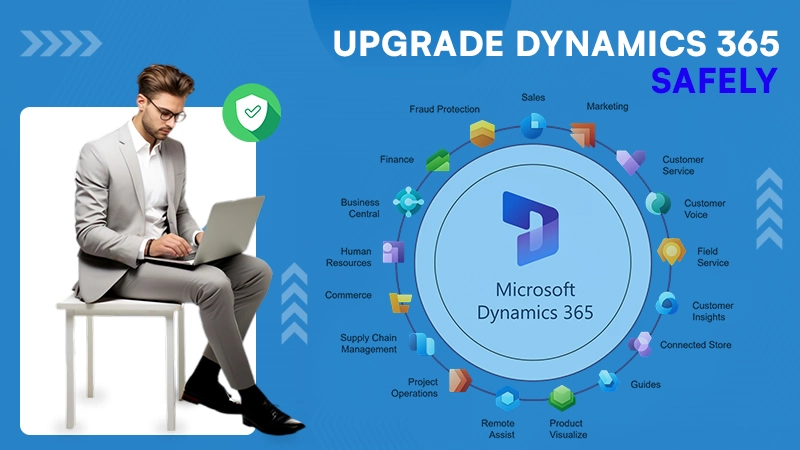In a competitive digital era, businesses that leverage technology effectively often outpace their rivals in efficiency, innovation, and customer satisfaction. One of the key pillars behind this technological advantage is software engineering. But how exactly can software engineering help your business grow, adapt, and thrive in today’s fast-changing market?
Understanding Software Engineering
Software engineering is the systematic application of engineering principles to the design, development, testing, and maintenance of software systems. Unlike ad hoc programming or basic app development, software engineering ensures that systems are built to be reliable, scalable, secure, and tailored to solve specific business problems.
Whether you’re a small startup or a large enterprise, integrating software engineering practices into your operations can significantly improve performance, reduce costs, and streamline workflows.
1. Automating Repetitive Tasks
One of the most immediate ways software engineering can help your business is through automation. Repetitive manual processes, such as data entry, report generation, scheduling, and inventory updates, can be transformed into efficient automated workflows.
By engineering software solutions to automate these tasks, businesses not only save time and reduce human error but also free up their workforce for more strategic and creative roles. Over time, this leads to higher productivity and employee satisfaction.
2. Enhancing Decision-Making with Data
Custom software solutions can collect, organize, and analyze data in real-time. With integrated dashboards and intelligent reporting, decision-makers gain access to actionable insights that guide strategy and operations.
For example, a retail company can benefit from sales trend analysis software that highlights which products perform best by region and season. By using engineered tools to interpret data accurately, companies can make data-driven decisions with confidence.
3. Improving Customer Experience
In today’s market, customers expect fast, seamless, and personalized digital experiences. Through software engineering, businesses can develop platforms—like websites, mobile apps, and portals—that are intuitive, responsive, and aligned with user expectations.
This is particularly valuable in sectors like e-commerce, healthcare, and finance, where user satisfaction and interface usability directly impact customer loyalty and revenue. A well-engineered solution can include user-friendly design, fast loading speeds, secure transactions, and personalized features.
4. Supporting Business Scalability
As your company grows, so do the demands on your systems and processes. Software engineering helps ensure your digital infrastructure is built with scalability in mind. This means your applications and systems can handle increasing numbers of users, data volumes, and functionalities without performance degradation.
Scalable systems are more cost-effective in the long run because they reduce the need for frequent overhauls or migrations. They also help maintain consistent user experience and uptime during periods of high demand.
5. Reducing Operational Costs
By engineering efficient systems tailored to your business needs, you can significantly reduce operational costs. For example, cloud-based applications often cost less to maintain than traditional systems. Custom-built software also eliminates the need to pay for unnecessary features included in off-the-shelf tools.
Additionally, by detecting and preventing issues early through proper testing and quality assurance, businesses can avoid expensive fixes or system failures later on.
6. Strengthening Security and Compliance
Cybersecurity and compliance with data regulations are more critical than ever. Software engineers apply best practices to ensure your systems are protected from vulnerabilities and compliant with standards such as GDPR, HIPAA, or PCI-DSS, depending on your industry.
Engineering secure software includes implementing proper authentication, encryption, data protection measures, and continuous monitoring to mitigate potential breaches.
7. Facilitating Integration Between Systems
Modern businesses often rely on a mix of tools—CRM systems, accounting software, marketing platforms, etc. Without integration, data remains siloed and workflows become inefficient.
Software engineers can design API integrations and middleware that connect different tools and platforms, ensuring smooth data exchange and centralized control. This results in better synchronization, reporting, and operational efficiency.
8. Enabling Innovation and Digital Transformation
Software engineering doesn’t just solve problems—it opens new possibilities. From AI-powered customer support bots to IoT-enabled manufacturing systems, engineered solutions can unlock innovative business models and revenue streams.
Companies that embrace custom software are often better positioned to adopt emerging technologies and drive digital transformation across all levels of the organization.
9. Custom Solutions Over Off-the-Shelf Software
While commercial software may offer a quick fix, it often lacks the flexibility and specificity needed for unique business requirements. Software engineers can create custom tools that fit your workflows exactly, integrate with your systems seamlessly, and evolve with your needs.
Custom solutions also allow you to retain control over features, updates, and data, rather than being dependent on third-party providers.
10. Partnering with Technology Experts
Working with a skilled development team can amplify the impact of software engineering on your business. Companies like Data Art, for instance, offer engineering-driven solutions that help businesses innovate, modernize legacy systems, and achieve operational excellence across different sectors.
Choosing the right partner ensures that your software aligns with both technical standards and business goals, offering long-term value.
Final Thoughts
Software engineering is not just a technical service—it’s a strategic asset that drives efficiency, growth, innovation, and competitiveness. Whether you aim to streamline operations, serve customers better, or expand into new markets, software engineering provides the foundation.
Investing in well-engineered software solutions today can future-proof your business for the challenges of tomorrow.










